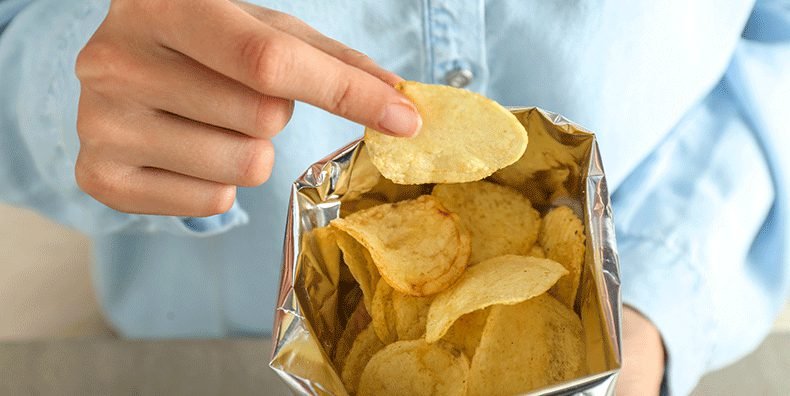Is Quick Weight Loss Possible?
Many people want to shed pounds quickly and safely. But is it possible?
Experts generally recommend a gradual approach to weight loss. Rapid weight loss can result in losing muscle, bone, and water instead of fat, according to the Academy of Nutrition and Dietetics.
The academy advises aiming for a loss of 1-2 pounds per week and avoiding fad diets or products that promise unrealistic results. Sustainable weight loss is best achieved through long-term lifestyle changes.
Vavada Casino invites you to tournaments with excellent prizes.
For those seeking faster results, consulting with a doctor is essential to ensure you stay healthy and receive the necessary nutrients.
Creating a Weight Loss Plan
The phrase «calories in, calories out» suggests that burning more calories than you consume will lead to weight loss.
However, it’s not that straightforward, as many people can attest from personal experience.
Both nutrition and exercise play crucial roles in weight loss. Reducing calorie intake has an immediate impact, but staying active helps maintain weight loss. Exercise offers numerous benefits for both body and mind, regardless of weight loss goals.
Metabolism, which affects how well your body converts calories into energy, is also important. Drastically cutting calories can deprive you of essential nutrients and slow down your metabolism, making weight loss more challenging in the long run.
Here are some strategies to start losing weight safely without excessive calorie cuts:
- Reduce portion sizes.
- Track your daily calorie intake and cut back slightly.
- Read food labels to understand calorie content.
- Drink more water to help control hunger.
Prioritize nutritious foods like vegetables, fruits, whole grains, and lean proteins. Working with a dietitian can help you create a plan tailored to your needs. Consistency is key—healthy habits must be maintained for the long term, not just for a short period.
Finding Motivation
Motivation is crucial for weight loss success. Identify your reasons for wanting to lose weight and stick to your plan. Research shows that people are more likely to maintain weight loss when they have personal reasons rather than just following a health provider’s advice.
Consider your motivations: Are you aiming to reduce the risk of heart disease or diabetes? Do you want to feel more comfortable in your clothes or play more easily with your grandchildren? Write down your reasons and keep them visible as daily reminders.
Studies also show that setting goals and rewarding yourself for achieving them can help maintain motivation.
Weight Loss Support
Various apps can help you track your eating habits. With your smartphone always at hand, you can easily keep up with your plan. Alternatively, you can maintain a pen-and-paper food journal.
Support from family and friends can also boost your motivation. Share your weight loss goals with them and ask for their encouragement.
Joining a weight loss group can provide a platform to discuss progress with others who understand your journey. Speaking with someone who has lost weight in a healthy way can be particularly inspiring.
Healthy Eating Habits
At its core, food is fuel for the body. However, social gatherings and emotional eating often influence our eating habits.
Identify what triggers your eating when you’re not hungry and develop a plan for those moments. Developing certain habits can aid in weight loss:
- Recognize your triggers: Do stress, anger, anxiety, or depression prompt you to eat? Is food your reward for good events? Be aware of these feelings and plan alternative actions, like taking a walk or texting a friend.
- Reward yourself for better choices: Treat yourself to non-food rewards like flowers or a movie night.
- Eat more frequently: Eating 5-6 times a day can help control hunger. Plan portions to avoid overeating.
- Practice mindful eating: Savor your food, notice its smell, taste, and texture, and recognize when you start feeling full. This awareness can help with weight loss and make eating more enjoyable.
- Limit portion sizes: Learn what constitutes a portion size. For example, a portion of protein is about the size of a deck of cards, and a serving of cooked pasta is half a cup. Stick to these sizes to help manage weight.
- Use smaller plates: Smaller plates can make portions appear larger, helping you eat less.
- Eat slowly: Research indicates that slow eaters consume fewer calories and are less likely to be obese compared to fast eaters.
- Avoid late-night eating: Eating late at night can increase the risk of obesity, slow calorie burn, and increase fat storage.
Managing Setbacks
Weight loss setbacks are normal. Even steady weight loss can hit a plateau, and everyone occasionally strays from their eating or exercise plans. When setbacks occur, take small steps toward your goals, seek encouragement from your support network, and avoid negative thoughts.
Diet for Rapid Weight Loss
You don’t need to adopt a vegan or gluten-free diet or eliminate any food group to lose weight. Long-term weight maintenance is more likely if you choose a sustainable eating plan. Fad diets may promise quick results but are usually unsustainable and can deprive you of essential nutrients.
Instead, focus on reducing or eliminating empty calories:
- Foods with added sugars: These include cookies, cakes, and sugar-sweetened drinks. Aim to limit added sugars to less than 10% of your daily calories.
- Low-nutrient carbohydrates: Choose whole grains over highly processed items. Look for low-glycemic foods that are digested slowly and less likely to spike blood sugar.
- High-calorie drinks: Replace soda, juice, and alcohol with zero-calorie drinks like lemon water, unsweetened tea, or black coffee. Diet drinks can save calories, but beware of compensating with additional snacks.
For weight loss, focus on:
- Protein: It keeps you satisfied and maintains muscle mass. Include vegetarian and vegan sources (nuts, beans, soy), as well as lean meats, poultry, fish, and dairy.
- Healthy fats: Small amounts of fat help you feel full. Opt for unsaturated fats from fish, nuts, seeds, and olive oil.
- Fiber: Found in vegetables, whole grains, and fruits. High-fiber foods include artichokes, green peas, broccoli, lentils, and raspberries.
- Meal replacements: Shakes and bars can help control calorie intake. Plan to transition to regular eating habits to maintain weight loss.
Fasting for Weight Loss
Fasting might seem like a quick way to lose weight, but not all fasts are the same. Prolonged fasting can be dangerous and ineffective for long-term weight loss. Intermittent fasting, where you limit eating to specific times or days, may be more effective.
Small, short-term studies suggest intermittent fasting can aid weight loss, but more research is needed on its long-term effects. Regular fasting is not safe for individuals with diabetes, eating disorders, or those who are pregnant or breastfeeding. If you choose to fast, stay hydrated and consult a doctor.
Key Takeaways
The best way to maintain weight loss is through long-lasting lifestyle changes, including a healthy eating plan and regular physical activity. If you’re unsure where to start or how to cut calories safely, consider consulting a registered dietitian.
FAQs on Fast Weight Loss
How does sleep affect weight loss? Inadequate sleep can impact your weight by increasing cravings for high-fat, high-carb foods and overall calorie intake. Poor-quality sleep can make weight loss more difficult.
How can I lose 20 pounds quickly? Experts suggest a realistic and sustainable goal of losing 1-2 pounds per week. Safe strategies include reducing portion sizes, drinking more water, increasing physical activity, and managing eating triggers. Rapid weight loss methods are generally not recommended.
What’s the fastest way to lose a significant amount of weight? Rapid weight loss (over 2 pounds per week) is sometimes supervised by doctors for specific cases, such as before weight loss surgery. Extreme diets with very low calorie intake can lead to rapid weight loss but are not sustainable and should only be followed under medical supervision. Fad diets may cause quick water and muscle loss, but they are not effective long-term solutions.



